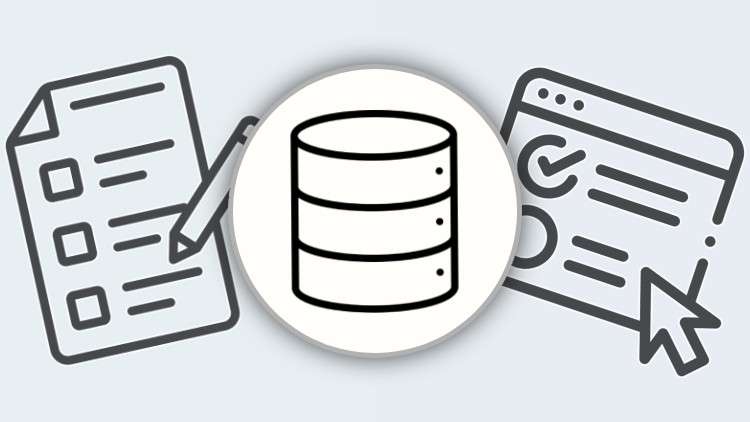
650+ Database Management Systems (DBMS) MCQ With Detailed Explanations [October 2023]
What you will learn
Comprehensive Understanding of Database Concepts
Mastery in Database Design and Modeling
Proficiency in SQL and Query Optimization
In-depth Knowledge of Advanced Database Systems
Insight into Transaction Management and Database Security
Description
Database Management Systems (DBMS) MCQ Updated on October 2023
Welcome to this extensive course on Database Management Systems (DBMS), a comprehensive study and testing resource designed for learners, developers, data analysts, and anyone enthusiastic about learning database management concepts. This course offers meticulously crafted multiple-choice questions based on diverse aspects of DBMS, ensuring a robust understanding of database design, SQL, transaction management, database security, and more.
Course Highlights:
- In-Depth Sections & Topics: Covering varied sections like Database Design, SQL & Query Optimization, Transaction Management, and more, with detailed subtopics for thorough knowledge.
- Interactive Learning: Through multiple-choice questions, gain insightful knowledge on topics like Entity-Relationship Model, Normalization, ACID Properties, and NoSQL Databases.
- Detailed Understanding: Learn about the significance, structure, types, and characteristics of databases and DBMS, offering a panoramic view of database management.
Course Content:
- Database & DBMS Overview:
- Learn about the organized collection of data known as databases, and understand how Database Management Systems interact with end-users, applications, and databases to capture and analyze data.
- Explore the problems with the file system, including data redundancy, access difficulties, and concurrent access anomalies.
- Understand the instance and schemas of databases, forming the overall design and information collection at a particular moment.
- Types & Characteristics of Databases:
- Dive into different database types like commercial, multimedia, and deductive databases, and learn about their specific applications and functionalities.
- Study the characteristics of DBMS, such as security provision, data abstraction, support of multiple data views, and multiuser transaction processing.
- Transaction & Schedule:
- Uncover the concept of transactions as a set of logically related instructions forming a logical unit of work, resolving partial execution problems.
- Discover the schedule, a higher unit of execution when multiple transactions are executed concurrently or sequentially, ensuring all instructions of participating transactions are included.
- Basics of RDBMS:
- Gain foundational knowledge about the Relational Database Management System (RDBMS), understanding domains, tables (relations), tuples, degrees, and cardinalities.
- Learn about the properties of RDBMS, such as atomic value cells, column value uniformity, unique rows, and column names, and the significance of table and column sequences.
Who is this course for?
This course is tailored for students, IT professionals, data analysts, developers, and anyone keen to deepen their understanding of database management systems through interactive and well-structured multiple-choice questions.
What will you gain?
- Profound knowledge of database concepts, design, and modeling.
- Comprehensive understanding of SQL, query optimization, and transaction management.
- Insight into database security, administration, data storage, retrieval, and advanced database systems.
Embark on this enlightening journey and delve deep into the intricate world of databases and their management systems. With a blend of detailed sections, in-depth topics, and interactive multiple-choice questions, this course promises a comprehensive learning experience in Database Management Systems, empowering you with the knowledge to optimize and manage databases effectively.
Content